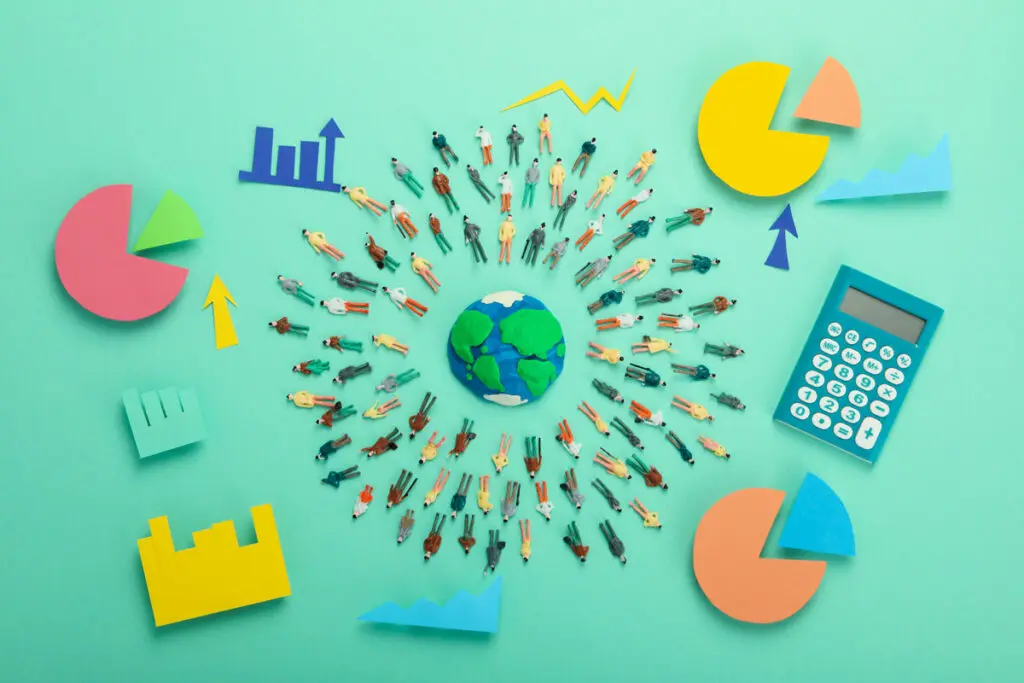
# The Global Race to Net Zero: What It Means for Ireland and Northern Ireland
## Introduction
As climate change continues to pose significant risks, the push for a global transition to net-zero greenhouse gas emissions is intensifying. This global race to net zero holds profound implications for countries all around the world, including Ireland and Northern Ireland. Understanding this transition is crucial for policymakers, businesses, and citizens alike. This article delves into the implications of the global race to net zero and what it means for both Ireland and Northern Ireland.
## What is Net Zero?
### Understanding Net Zero Emissions
Net zero refers to the balance between the amount of greenhouse gases produced and the amount removed from the atmosphere. Essentially, achieving net zero means that any emissions created are equally compensated by measures that absorb those emissions, such as reforestation or technological solutions. The target is to reach net zero by 2050 to limit global warming to below 1.5 degrees Celsius above pre-industrial levels, as outlined in the Paris Agreement.
### The Global Context
Globally, countries are setting ambitious targets to achieve net zero. Nations like the UK, the US, and many within the European Union are spearheading legislation aimed at reducing carbon footprints. For Ireland and Northern Ireland, aligning with these goals is not just a moral obligation; it is a matter of economic stability and environmental integrity.
## The Impact of Net Zero on Ireland
### Economic Transition
Transitioning to a net-zero economy presents both challenges and opportunities for Ireland. The Irish government has set a target to achieve net zero emissions by 2050, which requires a radical transformation of key sectors, including energy, transport, and agriculture.
1. **Energy Sector Transformation**: Ireland is heavily dependent on fossil fuels for energy. The transition to renewable sources such as wind, solar, and biomass presents opportunities for job creation in new industries while reducing reliance on imported fuels.
2. **Sustainable Agriculture**: Agriculture plays a vital role in Ireland’s economy, but it is also a significant contributor to greenhouse gas emissions. Implementing sustainable practices and technologies can enhance productivity while decreasing emissions, paving the way for a more resilient agricultural sector.
### Policy and Legislative Framework
To effectively achieve net zero, a robust policy framework is essential. The Climate Action and Low Carbon Development (Amendment) Act 2021 sets out legally binding targets for emissions reduction, pushing forward the agenda for climate action. Additionally, the government is encouraged to collaborate with local authorities and communities to ensure effective implementation.
## The Impact of Net Zero on Northern Ireland
### Economic and Industrial Implications
Northern Ireland has its unique challenges and opportunities in the race to net zero. The region has an industrial base that relies on fossil fuels, making the transition both complex and urgent.
1. **Energy Independence**: With current energy dependence, Northern Ireland faces a critical juncture. Investing in renewable energy infrastructure not only aids in achieving net-zero targets but can also lead to energy independence, reducing the economic vulnerability associated with fossil fuel imports.
2. **Innovative Industries**: By embracing green technology and innovation in carbon capture and storage methods, Northern Ireland can position itself as a leader in sustainable practices, attracting investment and talent in emerging industries.
### Collaborative Efforts for Sustainability
Northern Ireland’s unique political landscape means that collaboration between various stakeholders is essential. The Northern Ireland Executive’s commitment to reducing carbon emissions and their participation in local adaptation strategies will be crucial. Joint initiatives with businesses and communities can create effective pathways toward achieving climate goals.
## Public Engagement and Education
### Importance of Awareness
For both Ireland and Northern Ireland, public understanding of climate issues is vital. Awareness and education around climate action can empower communities to engage in sustainable practices and advocate for effective policies.
### Role of Education
Educational institutions can play a vital role in promoting sustainability. Incorporating climate education into curricula will develop a more informed generation equipped to tackle future challenges.
## Conclusion
The global race to net zero is not just a distant ambition; it is an immediate necessity that will shape the economic, environmental, and social landscape of Ireland and Northern Ireland. Both regions stand at a crossroads where proactive measures can lead to a sustainable future. By investing in renewable energy, implementing sustainable practices, and fostering public engagement, Ireland and Northern Ireland can not only meet their net-zero targets but also set a benchmark for others in the global community.
As we move forward in this critical journey, it will be essential for all sectors—government, business, and civil society—to work cohesively, ensuring a bright future for generations to come. The global race to net zero is a collective effort, and Ireland and Northern Ireland have the opportunity to lead the way.
By staying informed and proactive, we can collectively navigate the challenges ahead, ensuring a sustainable and prosperous future for all.
Copyright © 2025. All Ireland Sustainability
Webdesign & Development Northern Ireland 2b:creative
Entries have now closed. We would love it if you could join us for our awards evening on the 24th of October at La Mon, Hotel, Belfast!